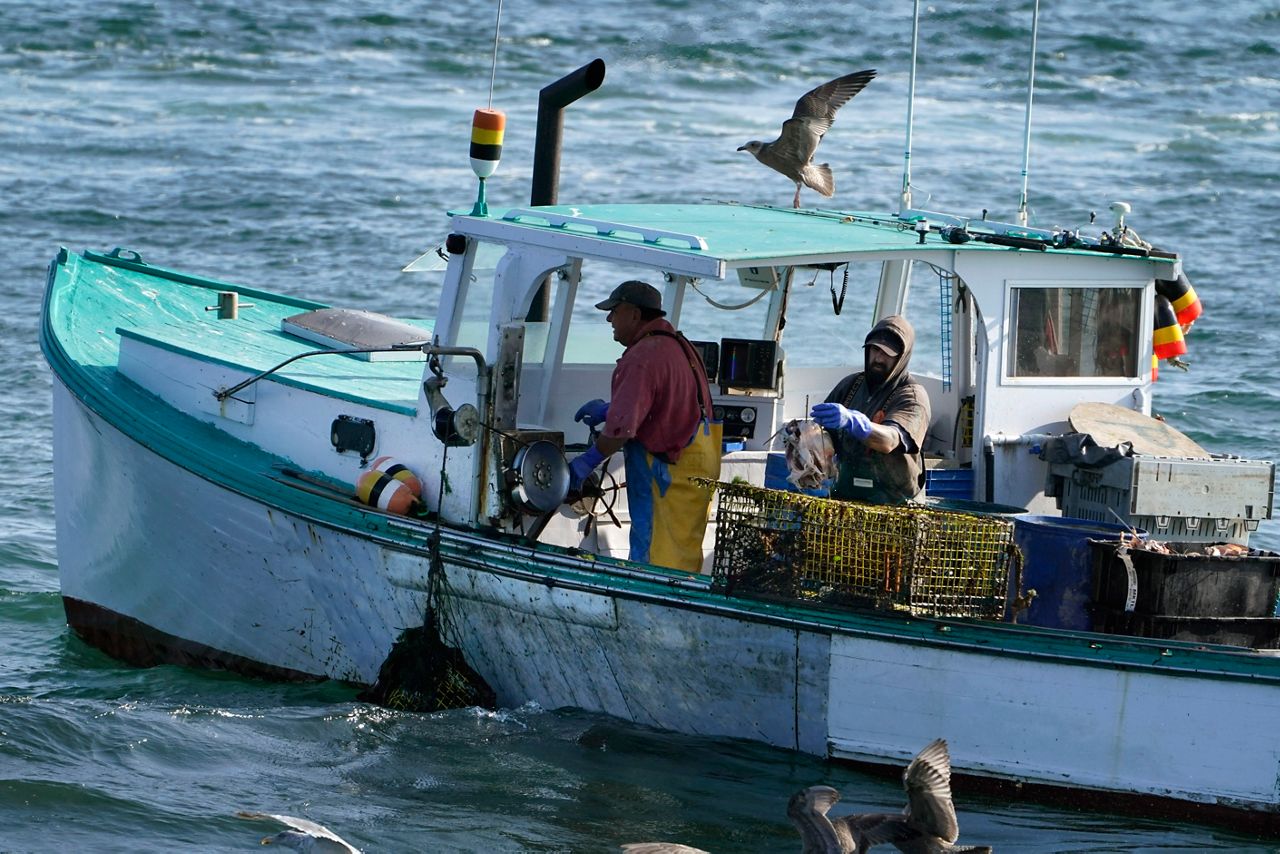Scarborough native Dennis Violette, 61, has been lobster fishing since he was 8 years old, and said he has yet to see a right whale entangled in lobster fishing gear. So he can’t understand why Monterey Bay Aquarium’s Seafood Watch Program is now telling consumers not to eat lobster in order to protect the endangered mammals.
“To me, it makes zero sense,” he said.
It’s been a month since the California-based advocacy group gave lobster a “red” rating, which tells consumers buying it is harms marine life. The rating system is designed to leverage consumer pressure against the fishing industry to do more to protect the environment.
Fishermen and one industry activist say it’s unlikely local lobster companies will feel much of a pinch from the rating.
Fishermen like Violette say they already made expensive changes to their gear in order to protect whales, yet are still facing crippling regulatory changes from the federal government. For them, the rating adds insult to injury.
“We go and do what (regulators) asked us to do, and then they go and red-list us,” he said of Monterey Bay.
Among other changes, fishermen have been required to convert their gear to include lines with break points so entangled whales can free themselves more easily. The new rules also establish a 950-square-mile area off the Maine coast where lobster fishing will be banned from October through January.
National Oceanic and Atmospheric Administration was scheduled to hold a meeting Wednesday, Oct. 5, in Portland on NOAA's new right whale protection regulations. Maine's congressional delegation opposes the new rules, and Sen. Susan Collins (R-Maine) was scheduled to testify to that effect Wednesday.
Marianne LaCroix, executive director of the Maine Lobster Marketing Collaborative, said she does not believe Seafood Watch's rating will harm Maine’s lobster industry.
NO IMPACT FELT FROM RED RATING
LaCroix has not seen any sign of a sudden dropoff in demand, only occasional anecdotal indications of anyone taking the rating seriously. For example, she said, she has heard that Pike Place Market, the famous fish market in Seattle, Washington, has announced it will not sell lobster meat due to the rating
However, the market was not a major customer for Maine lobster.
Right now, she said, the industry is just crossing its fingers and hoping such boycotts don’t become widespread.
“There hasn’t been any large-scale loss of business, but it’s definitely a concern,” LaCroix said.
Seafood Watch, in announcing the rating on Sept. 5, noted there are fewer than 340 North Atlantic right whales left, and that 80% of them have been entangled in fishing gear at least once in their lives.
But the announcement also acknowledged that more than 90% of the recorded entanglements cannot be linked to a specific gear type, and LaCroix said the organization is unfairly targeting Maine lobster fishermen with its rating.
The lines found in documented entanglements are not color-coded, the way Maine lobster lines are required to be by state law, and Maine lobster lines are much thinner than the lines recovered in entanglements.
“There are a lot of unknowns, but what we do know doesn’t implicate this fishery,” she said.
One result of the rating is angry fishermen. Curt Brown, a longtime lobster fisherman and marine biologist with Ready Seafood in Saco, declined comment this week but pointed to remarks he made in a press conference on Sept. 9 in the wake of Monterey Bay’s announcement.
“Maine lobstermen have probably put in more effort, and more time, and more money than any group in this country to protect right whales,” he said at the time. “All of that information fell on deaf ears at Seafood Watch.”
Violette said he too did not think the rating would itself impact his business, but he sees the new red rating as the latest in a string of difficulties that many lobster fishermen simply can’t afford.
“It’s almost like they’re trying to drive guys out by making us do all this stuff,” he said.
Violette, who fishes closer to shore these days, said he is still fishing, but he knows of other fishermen who are simply giving up.
“I’m seeing a lot of boats that are for sale,” he said.



